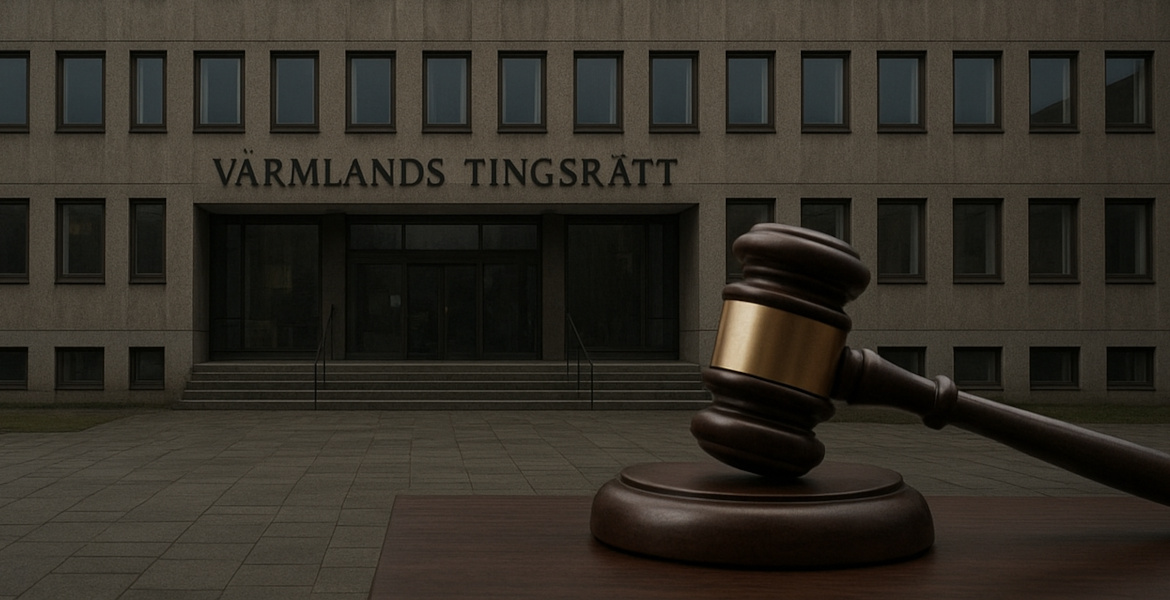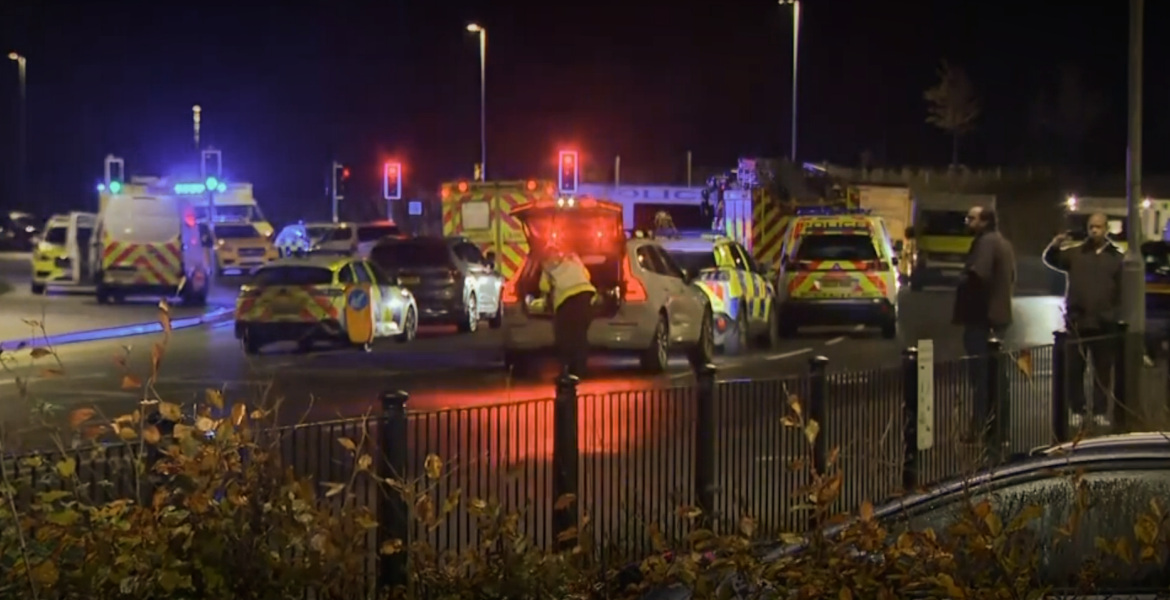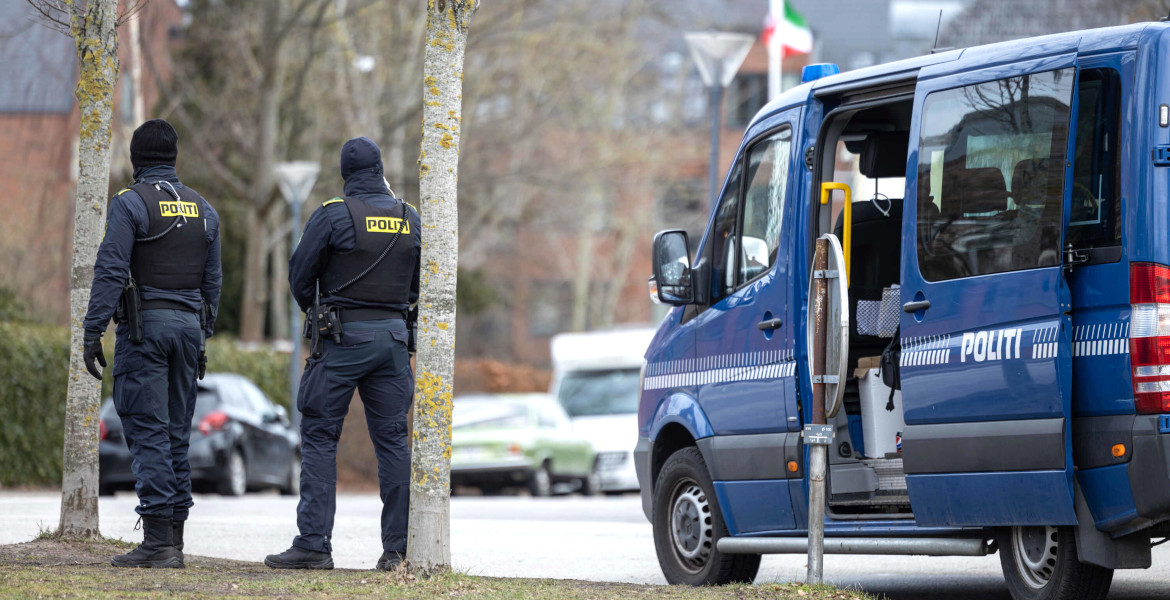The Södertälje district court is owned by a group of companies directly linked to a key figure in the notorious Södertälje network, according to the Bonnier newspaper DN.
Despite several attempts by the Swedish Courts Administration to break the link, the lease remains in place and the report shows links between the owners and the city's organized crime gangs.
The Södertälje district court is grappling with a dark reality of serious crime, where murder, kidnapping and extortion seem to have become commonplace. It has now been revealed that the county court is owned by a group of companies linked to a central figure in the Södertälje network. Despite attempts by the Swedish National Courts Administration (Domstolsverket) to resolve the situation, the agency pays millions in rent to the company every year, according to the Bonnier-owned newspaper DN.
The county court building and the old police station in Södertälje were previously owned by a large, publicly traded real estate company. Due to the high level of crime in the city, the real estate giant decided to sell and leave Södertälje, according to insider reports from the company.
In 2016, the property was sold when a couple of local entrepreneurs stepped in. Their company quickly became part of a larger group, and the group's main owner drew strong reactions from both the police and prosecutors working against organized crime.
At the head of the group, a well-known construction contractor is registered as the main owner. Although the man has not yet been convicted of any crime, he has been identified as a key player in the Södertälje network, according to a secret report by the National Operations Department (Polisens nationella operativa avdelning NOA).
Men vad i hela friden! jag tror jag svimmar!
Södertälje tingsrätt ägs av en bolagskoncern som är direkt kopplad till en nyckelperson inom Södertäljenätverket, rapporterar DN.Dessutom har flera av ägarna haft tillgång till tingsrättens lokaler.
Domstolsverket har försökt lösa…
— Victoria W Andersson (@signesignum) January 29, 2024
"Oh, my God! I think I'm going to faint! Södertälje District Court is owned by a group of companies directly linked to a key person in the Södertälje network, reports DN. In addition, several of the owners have had access to the district court's premises. The Swedish National Courts Administration has tried to solve the problem, but has not succeeded", comments Twitter/X user Victoria W Andersson.
Ongoing investigation
An ongoing investigation against the man, led by prosecutor Fredrik Sandberg, concerns extensive financial crimes, including money laundering and transactions of more than SEK 3.5 million (eur 3.1 million), in several of his companies. One of these companies is directly linked to the ownership of the building where the district court is located.
The somewhat peculiar ownership structure of the Södertälje District Court has long been the subject of concern within the Swedish National Courts Administration, with internal documents revealing discussions about the link to the partners and the desire for a link to the security unit.
The management of the courthouse has also been problematic. The current owners used to have access to the courthouse and garage. However, for security reasons, the court was able to stop this and an administrator - albeit one appointed by the owners - took over.
Nina Stubbe, court manager at Södertälje District Court, also confirms that she still meets the owners from time to time.
– I sometimes meet them down here, she says, referring to the area next to the garage.

Cash cow for criminals
Rental income from the district court has proven to be a significant cash cow for the group, with more than 45 million SEK paid by the Swedish National Courts Administration over the past seven years. The owners have also taken significant profits - SEK 12 million in 2023 alone - which has raised questions about the appropriateness of this financial arrangement.
The person who signed the profit distribution is the man's close business partner, who is also a partner in the group. He is also identified by several police sources as a key part of Södertälje's organized crime. The man has previously been convicted of violent crimes and his bank accounts have been frozen.
Harald Pleijel, director of property at the Swedish National Courts Administration, and Nina Stubbe, head of the district court, question the whole system where private actors with profit interests can own courts. This could ultimately threaten the independence of the courts.
– Should we have courts that are owned by private for-profit actors? Even foreign actors? asks Stubbe.
Last fall, the Swedish National Court Administration decided to leave the property on Storgatan and try to find a new landlord. It also considered the possibility of building a completely new courthouse. However, despite the decision to leave the current premises, the court will continue to rent them for at least four more years - generating millions in additional revenue for the owners.
The Södertälje network (Södertäljenätverket) was previously referred to in mass media reports as the Syrian Brotherhood - but this name was abandoned as it was considered to stigmatize the ethnic group in question.
The criminal network is believed to consist of around 100 people and has been involved in a number of murders, explosions, extortion, money laundering, kidnapping, robbery, fraud and drug trafficking.
According to the police, the Södertälje network operates as a mafia-like organization and can be found in all areas of civil society. People with links to the gang are also involved in local politics.





